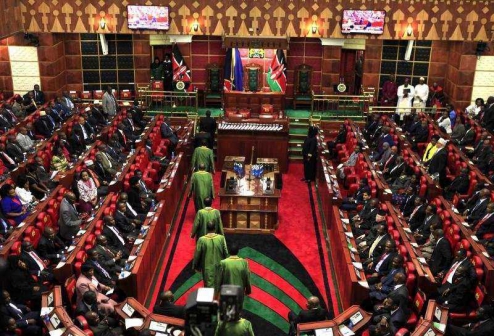×
The Standard e-Paper
Stay Informed, Even Offline

At exactly 10.01pm on Thursday night, Speaker Justin Muturi drew the curtains on the tenure of the National Assembly in Kenya’s 11th Parliament which first sat on March 28, 2013.
It was a somewhat emotional night, filled with goodbyes, gratitude and nostalgia as the MPs departed to go back to their constituencies to face voters and seek another chance to serve in the august House.